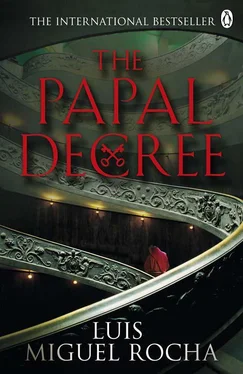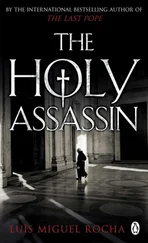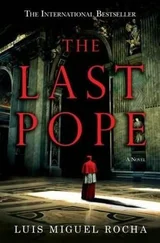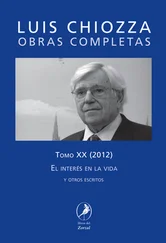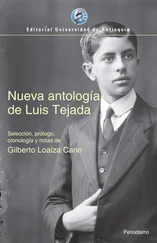Luis Rocha - Papal decree
Здесь есть возможность читать онлайн «Luis Rocha - Papal decree» весь текст электронной книги совершенно бесплатно (целиком полную версию без сокращений). В некоторых случаях можно слушать аудио, скачать через торрент в формате fb2 и присутствует краткое содержание. Жанр: Триллер, на английском языке. Описание произведения, (предисловие) а так же отзывы посетителей доступны на портале библиотеки ЛибКат.
- Название:Papal decree
- Автор:
- Жанр:
- Год:неизвестен
- ISBN:нет данных
- Рейтинг книги:4 / 5. Голосов: 1
-
Избранное:Добавить в избранное
- Отзывы:
-
Ваша оценка:
- 80
- 1
- 2
- 3
- 4
- 5
Papal decree: краткое содержание, описание и аннотация
Предлагаем к чтению аннотацию, описание, краткое содержание или предисловие (зависит от того, что написал сам автор книги «Papal decree»). Если вы не нашли необходимую информацию о книге — напишите в комментариях, мы постараемся отыскать её.
Papal decree — читать онлайн бесплатно полную книгу (весь текст) целиком
Ниже представлен текст книги, разбитый по страницам. Система сохранения места последней прочитанной страницы, позволяет с удобством читать онлайн бесплатно книгу «Papal decree», без необходимости каждый раз заново искать на чём Вы остановились. Поставьте закладку, и сможете в любой момент перейти на страницу, на которой закончили чтение.
Интервал:
Закладка:
‘So they killed a priest in Jerusalem and kidnapped Ben Isaac’s son?’ Jonas summarized with his hands behind his head, in a relaxed pose.
Ursino gave Jonas’s upper leg a little kick in reproach. ‘And that’s just the half of it, kid. There was also a Turk and a German in France.’ He raised a finger to his lips. ‘Don’t repeat this to anyone.’
It was Jonas’s turn to look offended. ‘When did I ever repeat anything said in here? And you talk a lot.’
Ursino had to agree. Jonas visited him from time to time. They had met in the year of Jubilee at a fund-raising dinner and had hit it off. Another friend, Hans Schmidt, had introduced them. They talked all night and many nights afterward. Jonas was a missionary, always traveling, but on his regular visits to the Holy See he never neglected a visit to see his friend in the Relic Room. Then he returned to the jungles, to mosquitoes, hunger, illiteracy, wars, intolerance, encephalitis, and illness. For seven months he hadn’t heard from Jonas. When Ursino feared the worst and was about to ask the secretary, for the love of God, to bring him some news, good or bad, Jonas gave signs of life, ill, but with the same spirit of mission he was familiar with. Fever had kept him in bed in a hut in Angola for months, and only God managed to save him, since there was no medicine capable of doing so. Ursino enjoyed Jonas more than he did any other person, probably because he had nobody else to enjoy, except the Holy Father, the secretary, and God, but with them he couldn’t have a good laugh or tell stories, and months could pass without seeing them. That might have been why Ursino tended to talk too much with Jonas, and Jonas had given proof of his trustworthiness.
‘But whoever’s behind the murders is very well informed,’ Ursino continued, carefully carrying over a kneecap of Saint Thomas Aquinas to be sent to a church being built in Campinas, Brazil.
‘Why?’ Jonas asked, stealthily fiddling with some fragments in a linen cloth on top of the desk.
Ursino put down the kneecap less carefully than he liked, and slapped the other’s hand. ‘Leave Saint Theresa’s wrist bones in peace.’
‘That’s her scaphoid?’
‘What’s left of it,’ Ursino explained while he folded the fragments up in the linen to protect them from Jonas’s curiosity.
‘Why?’ the missionary repeated his question.
‘Because they know about Christ’s bones.’
‘What?’ Jonas was so astonished he got up. ‘How could they know about that?’
‘Don’t ask me. Fewer than ten people know, I thought. Three are dead. The others are me, the secretary, the pope, Adolph…’ He was counting in his head. ‘And that’s all.’
‘And me,’ Jonas added.
‘You don’t count. Three of the Five Gentlemen are dead. Two are left,’ the missionary speculated.
‘How do you know about the Five Gentlemen?’ Ursino asked, truly surprised.
‘You yourself told me about them last year, you addled old man.’
‘They’re not going to get the other two,’ Ursino ventured to say.
‘Why not?’
‘They’re well protected inside the walls of the Vatican.’
They let the silence spread over the cases full of human history, a true hymn to their existence. Ursino sat down on a small chair to rest his bones. Jonas beat his foot nervously on the floor in a rhythm only he knew.
‘Can I smoke?’ Jonas asked.
‘Outside,’ Ursino said, pointing. ‘That habit is going to kill you.’
‘The doctor’s given up on me,’ Jonas said calmly.
‘Is that right?’
‘Yes. I’ve got a life expectancy of only seventy or eighty years,’ he joked.
‘You rascal,’ Ursino said. ‘How long are you going to be here this time?’ He changed the subject.
‘Only tonight.’
So little time, Ursino lamented silently. He liked having a friend around. Normally Ursino came in without speaking and left silently. Days passed without speaking a word. After a long time, he ended up almost grunting like a caveman. Sometimes he shouted just to give his larynx some exercise. A telephone call left him smiling the rest of the day. Yesterday and this morning were exceptions that proved the rule.
‘Where are you going next?’ Ursino wanted to know.
‘Do you know a priest named Rafael Santini?’ Jonas asked, ignoring his friend’s question.
Ursino was surprised by the question. ‘I do. Why?’
‘I need to find him. Do you know where he lives?’
‘Do you?’ Ursino asked apprehensively.
‘I don’t. That’s why I asked.’
‘You can’t,’ Ursino answered abruptly. Partly he felt jealous that Jonas wanted to meet him, but that wasn’t why he’d been brusque. ‘Who told you about him?’
‘He’s here on the list,’ Jonas said, tossing a paper down on the desk.
Ursino picked it up and read it. He found Rafael’s name after his own.
‘Why is my name on this list?’ He didn’t understand. ‘And what does this mean at the top?’ He referred to the title dominating the upper part in big letters. It said Deus vocat.
‘God calls,’ the other said.
‘Yes, I know. It’s Latin.’
Jonas approached him and lit a cigarette.
‘Don’t forget what I told you about smoking in here,’ Ursino cried, getting up also.
Jonas stuck the piece of fibula from some unknown saint into his friend’s eye. The holy relic also served as a weapon. Ursino gave a brief cry and sank heavily to his knees, while Jonas drove the bone deeper.
‘Jonas,’ Ursino whispered with a sad grimace.
‘Dead men don’t talk,’ the other said, suddenly yanking out the bone and stepping aside to avoid the blood that gushed from where there had once been an eye. Ursino, or his corpse, remained kneeling for a time before tumbling over, his legs sprawled under him.
‘Ad maiorem Dei gloriam,’ Jonas murmured. ‘Your Jonas died today with you.’
The man looked at the body as if for the first time.
I know well what you can do and none of your desires will be denied.
He blessed himself before picking up the piece of paper and leaving the holy Relic Room, where the silent witnesses of history reposed.
37
It was strange how decorative figures — static, immutable — could change their expression depending on the scene they were witnessing. The same rebellious, mischievous cherub, who held his finger over his lips to ask the Reverend Father Hans Schmidt to restrain himself, now seemed wide-eyed in the silent call for judgment.
‘Your theory is that the mind is our enemy,’ Cardinal Ricard, another counselor, said with a sarcastic smile.
‘Let’s say the mind possesses us,’ Schmidt added serenely.
‘Do you mind explaining? Lay it out, please.’
‘Certainly. Our mind, a voice we have inside our head telling us to do one thing or another, that judges and reacts to situations, was made for a specific purpose. To aid us in a practical way. Just as our immune system recognizes the characteristics of an aggressor to overcome constant attacks, the purpose of our mind is the same. We never stick our hand in the fire because we know it burns. How do we know that? We store that information. Unfortunately, we corrupt the whole purpose of the creation of the mind by letting it possess us.’
Everyone looked at Schmidt with evident interest. A few shook their heads in a gesture of disapproval, but listened to him attentively.
‘Aren’t we the ones doing the thinking?’ the same cardinal countered.
‘No, Your Eminence. We are the ones who know, who have the idea of thinking, which is very different. If we can listen to our thoughts, then we are the ones who listen.’
‘Does that mean that someone thinks for us?’ another counselor spoke.
Читать дальшеИнтервал:
Закладка:
Похожие книги на «Papal decree»
Представляем Вашему вниманию похожие книги на «Papal decree» списком для выбора. Мы отобрали схожую по названию и смыслу литературу в надежде предоставить читателям больше вариантов отыскать новые, интересные, ещё непрочитанные произведения.
Обсуждение, отзывы о книге «Papal decree» и просто собственные мнения читателей. Оставьте ваши комментарии, напишите, что Вы думаете о произведении, его смысле или главных героях. Укажите что конкретно понравилось, а что нет, и почему Вы так считаете.
